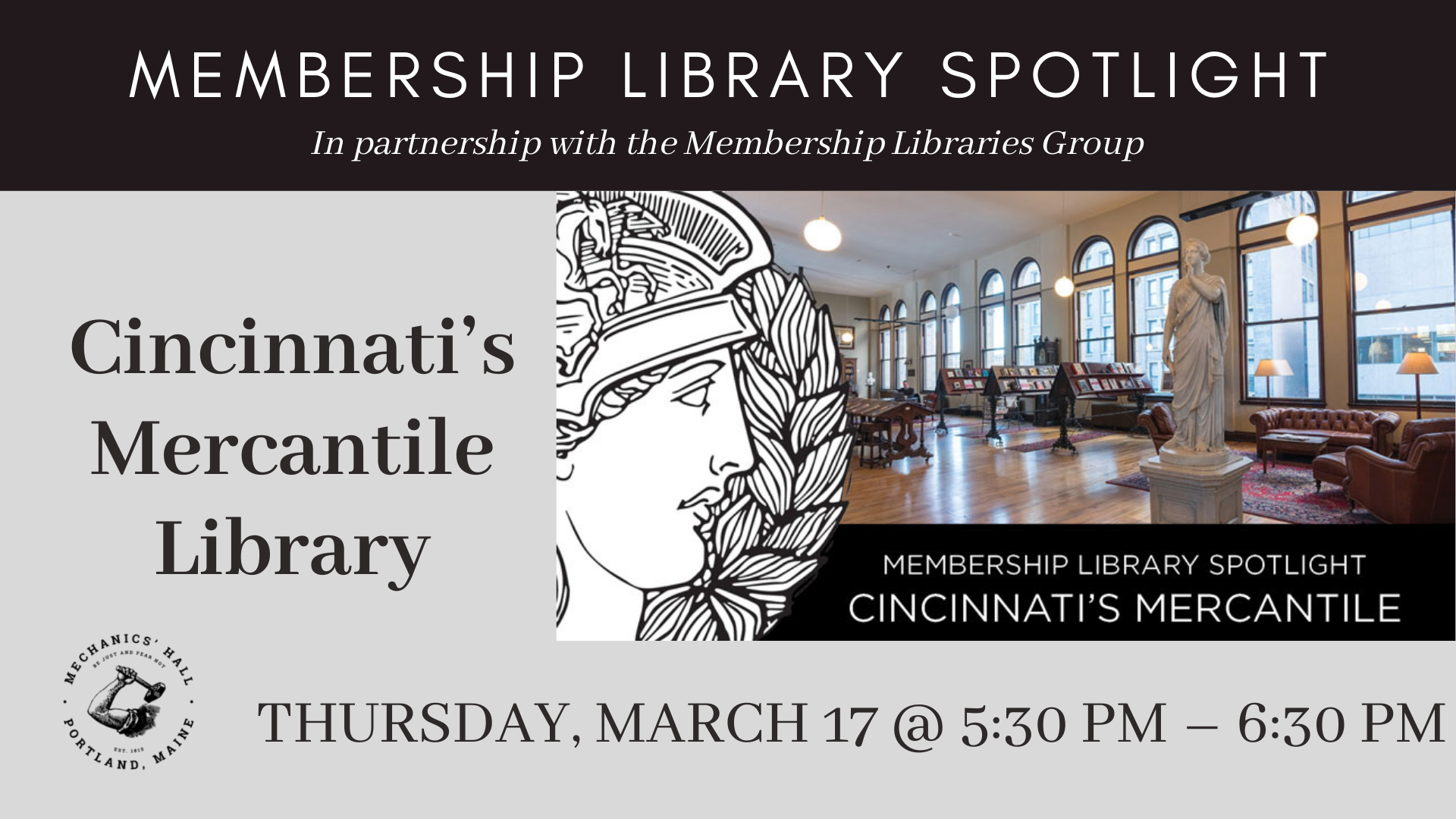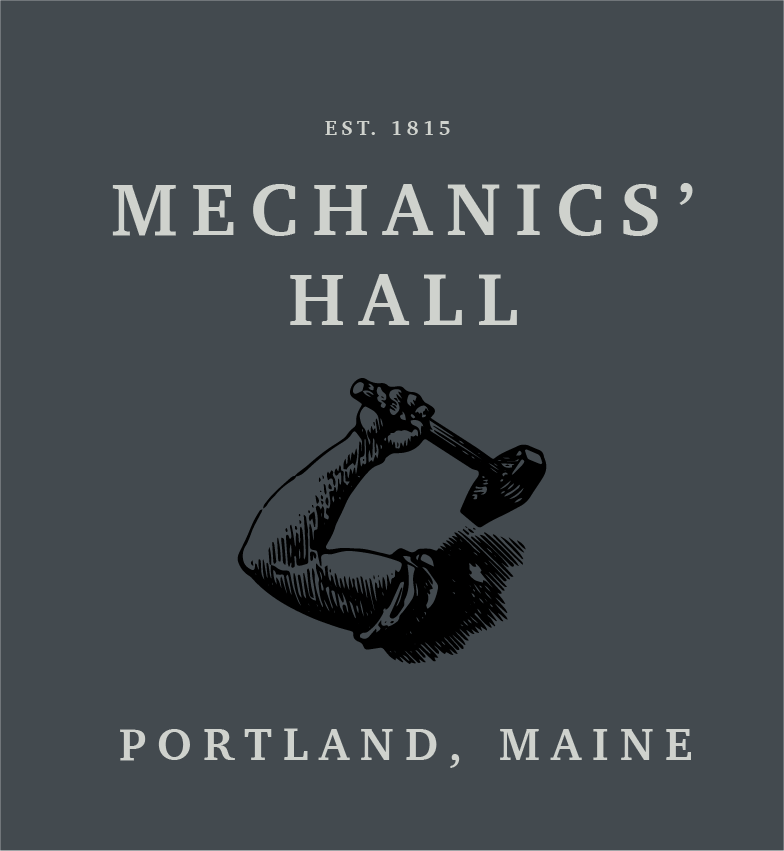march, 2022
17mar5:30 pm6:30 pmCincinnati’s Mercantile: Library Spotlight (Virtual)5:30 pm - 6:30 pm

Event Details
This program is reserved for members of the Providence Athenæum or another membership library. To register, click below REGISTER NOW Predating the Providence Athenæum by one year, the Mercantile Library in Cincinnati,
Event Details
This program is reserved for members of the Providence Athenæum or another membership library.
To register, click below
Predating the Providence Athenæum by one year, the Mercantile Library in Cincinnati, OH is one of fewer than 20 surviving membership libraries in the country. Since 1835, the Mercantile’s storied history has included fires, a 10,000-year lease, the first telegraph in the west, and a continued commitment to welcoming readers, writers, and thinkers. Join Executive Director John Faherty to learn more about this sister institution. For members.
—
Executive Director John Faherty still cannot believe his good fortune in getting a job at The Mercantile Library. His nightstand is filled with books because he is a slow reader, but he doggedly marches on with his pattern of one challenging book followed by one fun book. John thinks few people are actually worth biography and fewer yet of autobiography. John loves historical fiction and confesses a weakness for well-written crime procedurals. He has a particular affection for everything written by Kate Atkinson. He received a History degree from the University of Chicago in 1987. John lives with his particularly adorable family in Hyde Park.
Time
(Thursday) 5:30 pm - 6:30 pm

No Comments